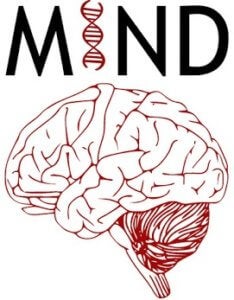NOTE: This study is no longer accepting participants.
The MIND Group at the University of Minnesota is conducting a survey to learn about how genetic and neurodevelopmental differences impact children’s behavioral strengths and challenges. The information you provide will help us to understand the best ways to support children and adolescents like your child.
About the Survey
Who can participate?
Parents of 3–17-year-olds living in the U.S., Canada, New Zealand, and Australia are eligible to participate.
What will happen in the study?
If the individual qualifies and decides to be in this research study, they will complete a brief survey online. The survey should take about 10–20 minutes to complete. The survey may be completed in more than one sitting.
What are the good things that can happen from this research?
We cannot promise any benefits to you or others from your taking part in this research. However, your participation will help us learn whether there are better ways to monitor and support social development in children with different genetic and neurodevelopmental differences.
What are the bad things that can happen from this research?
The main risk of this study is that you may find some of the questions on the questionnaires difficult or boring to answer, or you may feel that they are sensitive or personal. You are free to not answer any question if you find it upsetting. Another risk of this study is that your information could become known to someone not involved in the study.
Will you/your child be paid to complete this survey?
If you take part in this research study, you can elect to be entered into a drawing for one of four prepaid Visa gift cards of the following value:
- One $100 gift card
- One $50 gift card
- Two $25 gift cards
To be entered, you must provide your email address. This information will be entered separately after you finish the survey and will not be connected to your survey responses in any way.
Our Most Recent Opportunities
Assessing Parental/Guardian Experiences with Genetic Counseling for Fragile X Syndrome
Molly Mizenko, a student researcher in Indiana University’s Genetic Counseling Graduate Program, is conducting a survey to explore the experiences of parents and guardians who have received genetic counseling following their child’s diagnosis of Fragile X syndrome.
Study: Examining Factors that Influence Expectations for Individuals with an Intellectual or Developmental Disability (IDD)
Dr. Grace Francis from George Mason University is conducting an online survey to explore factors that affect the expectations for individuals with intellectual or developmental disabilities (IDD), including Fragile X syndrome (FXS), after they finish school.
Study: Identifying Translational Sleep Biomarkers in Autism
The Manoach Lab at Massachusetts General Hospital is conducting a research study to explore brain activity during sleep and sensory processing in individuals living with Fragile X syndrome (FXS).
Single-Dose Study for Adult Men with FXS
Cincinnati Children's Hospital Medical Center is looking for males ages 18-40 with FXS to participate in a single-dose clinical trial that is studying a drug called Gaboxadol.
Study: Somatic symptom development in 6-12 year old females with an FMR1 mutation (SoS Study)
Researchers at the New York State Institute for Basic Research are conducting a study to better understand the development of physical (somatic) symptoms in females living with and without an FMR1 gene variation.
Study: Web Intervention for Parents of Youth with Genetic Syndromes (WINGS)
Researchers at the Autism Assessment, Research, Treatment & Services (AARTS) Center at Rush University Medical Center are currently conducting a fully-virtual research study that is testing two telehealth interventions that are designed to help parents of children with genetic syndromes and intellectual disabilities gain strategies to manage challenging behaviors.


